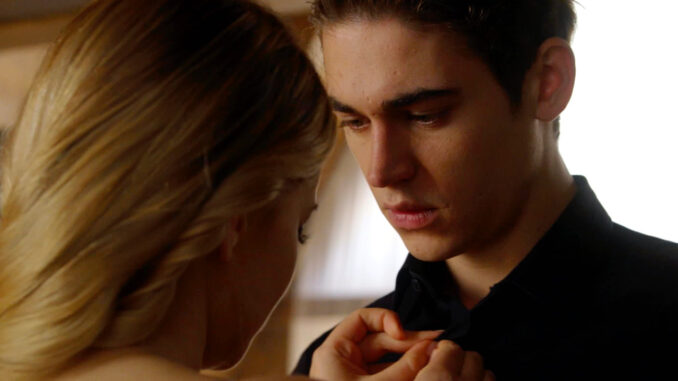
When Love Turns to Acid: The Echo of “After’s” Plea for Peace
The digital age, for all its marvels, has forged a double-edged sword: the internet, a crucible where communities ignite with shared passions, can just as swiftly become a toxic wasteland, devouring its own. Few phenomena illustrate this stark paradox more vividly than modern fandom, a space capable of generating boundless creativity and connection, yet also unleashing a torrent of vitriol that often spills beyond the fictional realm and into the very lives of those who bring stories to life. The official account for the “After” series, driven to issue a desperate plea for peace amid a relentless wave of harassment targeting its cast and story, stands as a stark, sobering siren call – a chilling testament to what happens when passion curdles into poison, and the line between critique and cruelty is not just blurred, but obliterated.
At its heart, fandom is about love. It’s the shared exhilaration of a gripping narrative, the fervent discussions, the camaraderie built around a fictional universe that feels as real as our own. For works like “After,” which tap into intense emotional landscapes and complex character dynamics, this connection can be particularly potent. Fans invest deeply, creating fan art, writing fanfiction, and dissecting every plot point. This engagement is, in many ways, the lifeblood of creative enterprises, fostering a vibrant ecosystem of appreciation and expansion. But beneath this fertile ground for connection lies a dangerous undercurrent: the sense of ownership. When fans feel they “own” a story or its characters, any deviation from their personal vision, any creative choice that challenges their expectations, can be perceived as a betrayal. And in the digital age, betrayal is often met with the swift, unforgiving fury of the online mob.
The internet, with its cloak of anonymity and its boundless echo chambers, provides the perfect environment for this fury to fester and erupt. What might begin as legitimate critical feedback can quickly devolve into personal attacks, body shaming, death threats, doxxing, and relentless character assassinations – not just of fictional characters, but of the flesh-and-blood actors portraying them and the creators behind the pen. The targets become dehumanized, reduced to mere objects upon which collective disappointment, anger, and perceived slights can be unleashed without consequence. The “After” cast and crew, like many others, found themselves caught in this digital crossfire, their humanity stripped away by those who had once claimed to love their work. The sheer volume and intensity of such harassment can be overwhelming, eroding mental health, instilling fear, and making the very act of creation feel like walking a gauntlet.
That an official account – a corporate entity representing the very work being attacked – felt compelled to plead for peace is a damning indictment of the current state of online discourse. It’s a surrender to the mob, an acknowledgment that the toxicity has become so pervasive, so aggressive, that the traditional avenues of engagement are no longer viable. It signifies a profound breakdown in the creator-fan relationship, where the creators are no longer seen as partners in a shared journey, but as mere vessels for fan fantasies, susceptible to public flogging if they stray from script. This isn’t just about hurt feelings; it’s about the very sustainability of artistic endeavor when artists fear for their safety and well-being every time they make a creative choice. It highlights a critical societal failure to distinguish between constructive criticism – a vital part of any artistic process – and targeted harassment, which is nothing short of online abuse.
The plea from the “After” team is more than just a specific incident; it’s a mirror reflecting a broader, troubling trend across numerous fandoms, from blockbuster franchises to indie releases. It illustrates the urgent need for a collective recalibration of how we interact with art and artists online. It demands that we remember the humanity behind the screen, the real people with real feelings who are brave enough to put their work out into the world. It calls upon us to cultivate empathy, to pause before we type, and to ask ourselves: does this comment contribute to a healthier conversation, or does it merely add to the acid of online vitriol?
Ultimately, the “After” official account’s desperate appeal is a stark reminder that the digital town square, while promising connection, also requires constant vigilance and a renewed commitment to decency. The love of a story should elevate, not demolish. When a creative team has to beg for basic human respect, it signals that the very heart of fandom has been corrupted. It is a moment for introspection, for acknowledging the shadows that lurk within our most passionate communities, and for striving to ensure that the joy of shared stories never again becomes an excuse for targeted torment.
